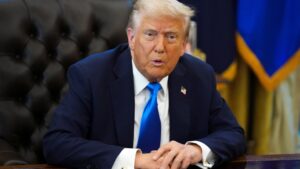Sovereigns are like business empires. As conglomerates tirelessly dream up ways to conquer new markets, states religiously devise methods to mop up more tax. They pose as morally righteous, innovative and guardians of national interest – yet, endeavouring to appear welcoming to global capital. As governments compete for the global tax pie, they dress up as business-friendly regimes before international investors. Never was this more evident than in the years since the global meltdown.
The crisis of 2008, the urgency to bail out economies, and the tide of anger sparked the attack on tax havens and the clamour to tax the rich while kicking off a dialogue to bring in a minimum I-T to stop tax dodgers from shopping around jurisdictions for the best deal. Simultaneously, the dramatic surge in ecommerce planted the idea to tax foreign ecommerce companies tapping large markets without having to set up shop in buyers’ countries. This is a work in progress and it could be some years before countries agree on a framework.
The crisis of 2008-09, Covid, risk-averse job creators and the burden on states to spend their way out of downturns have hardened governments’ approach to taxation. Britain is changing a 200-year feature of the British tax system (which would impact many NRIs), the US has floated a bill to help Americans working overseas, and states have alleged MNCs of avoiding tax by shifting profits elsewhere – as is borne out by the Australia-Coca-Cola tussle.
New Delhi is no different. Plugging gaps in laws, seizing opportunities to raise tax if it’s politically acceptable and not too unsettling for businesses, and endless queries to fish for info amid suspicion of evasion are by now hard-wired.
So, the fear of revenue loss would weigh against proposals to rationalise rates and simplify structures – even if they help to make life easier for businesses and minimise disputes. Somewhere along the way, the unstated goal to maximise collection may have influenced the language of tax regulations and the stance of the tax administration. Some are sensing the damage. A week before he stepped in as RBI governor, Sanjay Malhotra, in his last address as revenue secretary, told customs officials ‘not to kill the golden goose and keep the interest of the economy before the interest of the revenue’. Whether the remarks sink in and tone down high-pitched demands is anyone’s guess. But rarely, if ever, a senior bureaucrat had sent out such a message.No one expects miracles or radical changes in the budget. Tax on capital gains was raised a year ago and a degree of uniformity was brought in. Tax on business income was lowered – more so, for new manufacturing units, and it would have to remain low to keep doors open for local and foreign investors. Will a slowing consumption – for years, the most credible story – push GoI to cut tax on personal income? The ratio between personal I-T to disclosed income, and personal I-T to GDP, has surged compared to pre-Covid average numbers.
While there may be a case for a cut, not too many expect finmin to take the bet. Its earlier gamble to cut corporate tax has not paid off. That tax cut 5 years ago was driven by business compulsions, and now with Donald Trump likely to keep tax at a 37-year low and regulations easy for Corporate America, it would be quixotic for Delhi to raise the rate just because India Inc failed to live up to expectations. All in all, besides some minor tinkering, finmin may not gamble on consumption with any meaningful cut in personal I-T or pruning surcharge for the rich.
It would be against the grain. Having committed to a fiscal deficit of 4.5% for the next financial year, there would be reluctance to sacrifice revenue. Indeed, GoI may prefer saving resources for direct, public capex to cutting taxes to stoke private consumption – particularly because excess capacity in India, and China may hold back private capex. Coming 10 days after Trump’s swearing-in, there will be little room for bold bets given future ripples of any tariff war or a retaliatory devaluation by China.
Still, the finmin can do its bit.
- Rationalise multiple TDS rates (a source of litigation).
- Extend schemes like Vivad se Vishwas to even those matters that are not pending before a court.
- Exclude promoters, if needed, to tax buyback earnings as capital gains instead of dividend.
- Tweak tax laws to encourage the merger of a loss-making non-manufacturing entity with a profit-making one.
- Lighten compliance burden for small businesses.
Tighten laws to punish companies that don’t pay MSME vendors in time. The last could mean completely disallowing buyers from taking accrued expense to an MSME in the particular year if the payment is not made within 45 days – or even 60 or 70 days if that’s more realistic. Capex and growth are not trickling down from big corporates. Perhaps it’s time for a bottom-up approach by giving small businesses a chance.Start with small steps, if one doesn’t have the stomach for big bets. Let Malhotra’s parting shot be the beginning of a change.










